1. Introduction: Can You Get a Tooth Pulled While Pregnant?
Pregnancy is a time filled with excitement, change and sometimes, unexpected health concerns. One common question many expectant mothers ask is: can you get teeth pulled while pregnant? The short answer is yes, tooth extraction during pregnancy is generally considered safe when done under proper medical guidance. In fact, leaving a painful or infected tooth untreated can pose more risk to both mother and baby than having it removed.
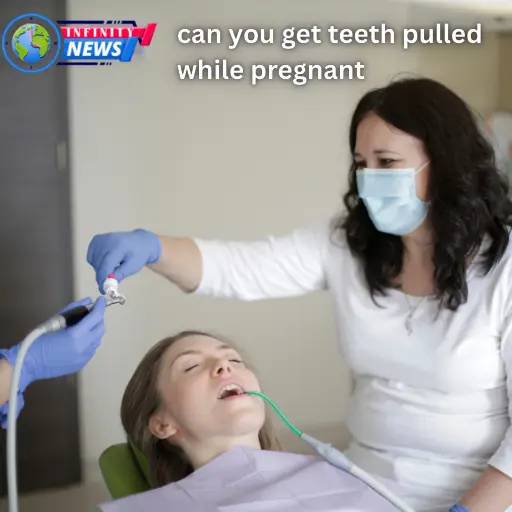
Dental health plays a vital role during pregnancy, and maintaining it can prevent complications. While some women may fear that dental procedures while pregnant like extractions, X-rays, or anesthesia could harm the baby, modern dentistry uses pregnancy-safe methods to keep you and your little one protected.
In this article, we’ll explore when and why getting a tooth pulled while pregnant is necessary, which trimester is best, what precautions are taken, and how to care for your mouth afterward. Whether you’re facing an emergency or planning ahead, you’ll find everything you need to feel informed and reassured.
2. Why Dental Health Matters During Pregnancy
Taking care of your teeth during pregnancy is more important than many people realize. Hormonal changes can increase the risk of gum disease, tooth decay, and infections, all of which may require dental procedures during pregnancy if left untreated. Poor oral health isn’t just uncomfortable it can actually affect your baby’s health, too.
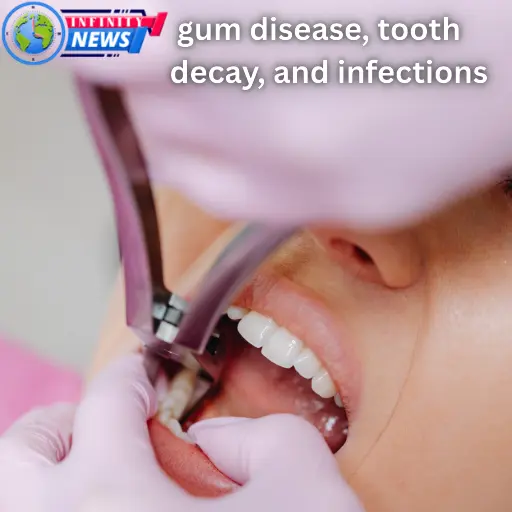
Studies have shown that untreated dental infections during pregnancy may be linked to premature birth or low birth weight. That’s why it’s essential not to ignore tooth pain while pregnant or delay necessary treatment like tooth extraction if your dentist recommends it.
Even if you’re not experiencing pain, regular checkups help prevent bigger problems down the road. Maintaining strong oral health during pregnancy supports your overall well-being and reduces the chances of needing emergency dental care later. Good habits now can lead to a healthier pregnancy and a smoother recovery after delivery.
3. Is It Safe to Have a Tooth Extraction While Pregnant?
Yes, in most cases, tooth extraction during pregnancy is safe especially when it’s medically necessary. According to the American Dental Association (ADA) and the American College of Obstetricians and Gynecologists (ACOG), dental work during pregnancy, including extractions, can be safely performed with proper care and timing.
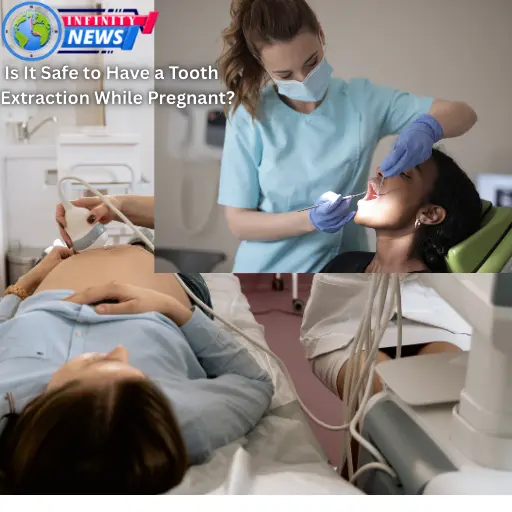
If you’re experiencing severe tooth pain while pregnant due to infection, decay, or trauma, delaying treatment could put you and your baby at greater risk. Infections can spread quickly and may even lead to complications if not addressed promptly.
Dentists often recommend scheduling dental procedures while pregnant during the second trimester, which is considered the safest window. During this time, you can usually have local anesthesia and any needed dental X-rays with protective shielding.
Always let your dentist and OB-GYN know you’re pregnant so they can coordinate safe care. In emergency cases, getting a tooth pulled while pregnant is not only safe it’s necessary.
4. Best Time for Dental Procedures During Pregnancy
Timing matters when it comes to dental work during pregnancy. While some procedures are safe throughout, most dentists recommend scheduling non-emergency dental treatments during the second trimester.
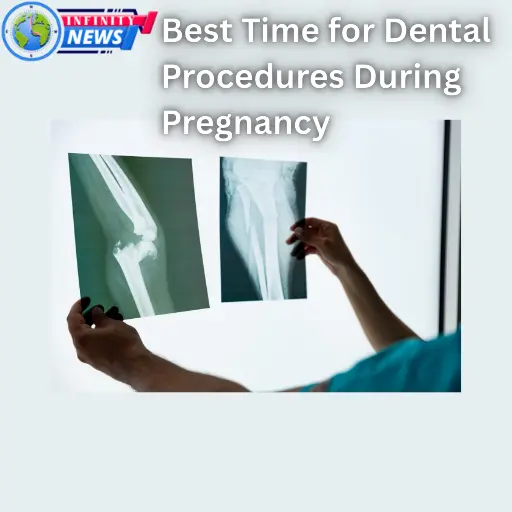
First Trimester: Why Most Procedures Are Avoided
During the first 12 weeks, the baby’s vital organs are developing. That’s why most dentists avoid performing anything beyond essential care. Even though some dental procedures in early pregnancy may be safe, stress and nausea can make the experience uncomfortable for the mother.
Second Trimester: Safest Window for Dental Work
The second trimester (weeks 13 to 27) is widely considered the safest time to get a tooth pulled while pregnant. At this stage, the baby’s development is more stable, and the mother is generally more comfortable. It’s the ideal time for procedures like tooth extractions, fillings, and cleanings.
Third Trimester: Discomfort and Positioning Issues
Lying flat for long periods can be difficult in late pregnancy. Plus, increased pressure on your back and uterus makes lengthy dental visits challenging. Unless it’s an emergency, dental procedures in the third trimester are usually postponed.
5. Anesthesia, X-Rays, and Medications: What’s Safe?
When undergoing tooth extraction during pregnancy, many women worry about the safety of local anesthesia, X-rays, and medications. Thankfully, modern dental practices are designed to protect both you and your baby during these procedures.
Local Anesthesia Safety
Local anesthesia during pregnancy is typically safe, as it numbs only the area around the tooth. Dentists use pregnancy-safe anesthetics to ensure you feel comfortable without risking harm to your baby. If you’re concerned, be sure to discuss your options with your dentist before the procedure.
X-Ray Shielding Protocols
Though dental X-rays during pregnancy are usually avoided, they can be necessary in certain cases. If you do need an X-ray, X-ray shielding protocols such as lead aprons and thyroid collars are used to protect both mother and baby from radiation exposure. The amount of radiation from dental X-rays is minimal, but these precautions help ensure maximum safety.
Safe Antibiotics and Pain Relievers
If an infection is present, your dentist may prescribe antibiotics. Safe antibiotics during pregnancy include amoxicillin, which is commonly used for dental infections. Pain relief options, like acetaminophen, are generally safe, but it’s best to avoid NSAIDs like ibuprofen, especially during the third trimester.
6. What If You Delay Dental Treatment?
Delaying dental treatment during pregnancy can you get teeth pulled while pregnant lead to serious consequences for both mother and baby. Ignoring tooth pain or an untreated dental infection may seem like a temporary solution, but it can lead to worsening health issues.
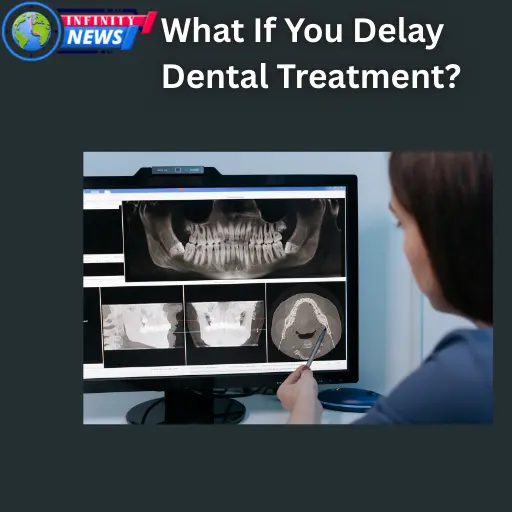
Dangers of Untreated Infections can you get teeth pulled while pregnant
An untreated tooth infection during pregnancy can spread to surrounding tissues, causing abscesses and gum disease. Infections like these can not only worsen the pain but also lead to severe complications such as tooth loss or more serious health conditions. If bacteria enter the bloodstream, they can affect other parts of the body, including the heart.
Risk to Baby and Mother can you get teeth pulled while pregnant
In addition to the discomfort for the mother, there are risks to the baby. Studies have shown that oral infections during pregnancy are linked to premature birth, low birth weight, and other pregnancy complications. By addressing infections early, you significantly reduce the chances of these serious outcomes. It’s crucial to seek treatment promptly to protect both your health and the health of your baby.
7. Signs You May Need an Emergency Extraction can you get teeth pulled while pregnant
While most dental procedures can be planned, sometimes an urgent tooth extraction during pregnancy is necessary. If you experience any of the following symptoms, it’s important to seek dental care immediately.

Tooth Abscess can you get teeth pulled while pregnant
A tooth abscess is a pocket of pus caused by an infection in the tooth or gums. It’s usually accompanied by intense pain, sensitivity, and swelling. If left untreated, an abscess can lead to the spread of infection, which may require an emergency tooth extraction while pregnant.
Swelling and Pain can you get teeth pulled while pregnant
Swelling in the gums, jaw, or face is a serious sign that an infection is present. If pain and swelling while pregnant are persistent and not relieved by over-the-counter medications, it could indicate a need for immediate dental care. Prompt treatment can prevent the infection from worsening and affecting other areas of the body.
Fever or Drainage
If you develop a fever or notice any pus drainage from your gums or tooth, this could signal a severe infection. These symptoms require immediate attention from your dentist to avoid complications. Fever from dental infections during pregnancy can be particularly concerning, as it may affect both the mother and baby.
8. Preparing for Tooth Extraction During Pregnancy
Preparing for a tooth extraction while pregnant requires careful planning and communication between your dental team and your OB-GYN. By taking the right steps beforehand, you can ensure a smoother and safer procedure for both you and your baby.
Inform Your OB-GYN and Dentist
Before scheduling any dental procedures during pregnancy, it’s essential to inform both your OB-GYN and dentist about your pregnancy. Your dentist will need to know your due date, any complications you’ve experienced, and any medications you’re currently taking. Similarly, your OB-GYN should be aware of the planned dental procedure to assess any risks.
Review Medical History and Medication List
Your dentist will also ask for a complete review of your medical history and medication list. This ensures they can avoid any medications or procedures that might not be safe for pregnancy. For instance, certain antibiotics and pain medications may need to be adjusted. By providing accurate information, you’ll help your dental team create a treatment plan tailored to your specific needs.
9. Recovery Tips: Post-Extraction Care for Pregnant Women
After a tooth extraction during pregnancy, following proper aftercare is essential to ensure a smooth recovery while keeping both you and your baby safe. Here are some important recovery tips:
Safe Pain Relief Options
Managing pain after a tooth extraction while pregnant can be tricky, but there are safe options available. Acetaminophen (Tylenol) is generally considered safe for pain relief during pregnancy, but avoid NSAIDs like ibuprofen or aspirin, especially during the third trimester. Always check with your dentist or OB-GYN before taking any medication to ensure it’s safe for you and your baby.
Proper Oral Hygiene
Keeping the extraction site clean is crucial to avoid infection. Gentle brushing around the area, saltwater rinses, and avoiding the use of straws can help prevent dry sockets and promote healing. It’s important to follow your dentist’s instructions regarding when and how to clean your teeth post-procedure.
When to Call Your Dentist
If you experience excessive pain, swelling, or signs of infection, such as fever, increased redness, or pus discharge from the extraction site, contact your dentist immediately. Emergency dental care during pregnancy is important if any complications arise, and timely intervention can prevent further health risks.
10. What Types of Dental Work Are Considered Safe?
When it comes to dental procedures during pregnancy, many treatments can be safely performed, especially if they’re medically necessary. Here’s a look at what’s typically safe and what should be postponed:
Fillings, Cleanings, Root Canals, and Extractions
Common procedures like dental fillings, cleanings, and root canals can usually be done without risk to the baby. These treatments help maintain oral health and prevent infections that could lead to complications. Tooth extractions during pregnancy, if necessary, can also be performed safely, as long as appropriate precautions are taken.
Procedures to Postpone (e.g., Cosmetic)
While most necessary dental work during pregnancy is safe, cosmetic procedures are best postponed. This includes treatments like teeth whitening, veneers, or other elective cosmetic dental procedures. These treatments often require medications or chemicals that are best avoided during pregnancy. It’s always a good idea to wait until after your baby is born for non-essential cosmetic treatments.
11. Myths About Dental Work During Pregnancy
There are several misconceptions when it comes to dental procedures during pregnancy, and it’s important to separate fact from fiction. Let’s address a few common myths:
“You Can’t Have X-rays”
One common myth is that dental X-rays during pregnancy are completely off-limits. While unnecessary X-rays are generally avoided, they are not entirely prohibited. With modern technology, X-ray shielding protocols (like lead aprons and thyroid collars) significantly reduce radiation exposure. If an X-ray is necessary for diagnosis, it can be done safely with these precautions in place.
“All Dental Work Should Be Avoided”
Another myth is that any dental work during pregnancy should be avoided. In reality, routine dental care is crucial during pregnancy. Dental cleanings, fillings, and even tooth extractions during pregnancy may be necessary to maintain oral health and prevent infections that could harm both the mother and baby. The key is to avoid elective cosmetic treatments, not essential care.
Truth vs. Misinformation
It’s easy to get overwhelmed by misinformation, especially with so many myths circulating online. The truth is that dental work during pregnancy can be safe and beneficial when proper precautions are taken. Always consult with your dentist and OB-GYN to ensure you’re making the best choices for your health and your baby’s well-being.
12. How to Maintain Good Oral Health Throughout Pregnancy
Maintaining good oral health during pregnancy is vital for both your well-being and your baby’s health. Hormonal changes can increase the risk of dental issues, but with the right care, you can keep your teeth and gums healthy throughout this important time.
Brushing, Flossing, and Diet
Brushing your teeth at least twice a day with fluoride toothpaste and flossing daily is essential. This helps prevent gum disease, tooth decay, and infections. Be sure to brush gently, especially if you’re dealing with pregnancy-related gum sensitivity. Eating a balanced diet rich in fruits, vegetables, and whole grains can also support healthy teeth and gums. Avoid sugary snacks, which can lead to cavities and plaque buildup.
Prenatal Vitamins and Calcium
Prenatal vitamins are a key part of your pregnancy health routine, and they also support strong teeth and bones. Make sure to take your prenatal vitamins regularly, as they contain essential nutrients like folic acid and calcium, which help strengthen your teeth and bones. Calcium during pregnancy is especially important for both you and your baby while your baby’s bones and teeth are developing, maintaining your own calcium levels will ensure healthy dental health.
FAQs Aboutcan you get teeth pulled while pregnant
1. Is it safe tocan you get teeth pulled while pregnant?
Yes, tooth extractions during pregnancy are generally safe, especially when done by a qualified dentist. The best time to have dental procedures like extractions is typically during the second trimester, as it’s the safest period for both you and your baby.
2. Can I have dental X-rays while pregnant?
While dental X-rays during pregnancy are usually avoided unless necessary, they can be safely performed with proper precautions, like X-ray shielding (lead aprons and thyroid collars) to minimize radiation exposure. Always inform your dentist that you are pregnant before any X-ray is taken.
3. What if I need a root canal during pregnancy?
A root canal during pregnancy is generally safe, especially in the second trimester. If you are in pain or have an infection, it’s better to treat the problem rather than leave it untreated, which could cause complications.
4. Is it safe to use anesthesia for a tooth extraction while pregnant?
Local anesthesia during pregnancy is considered safe, as it numbs only the affected area without affecting the baby. However, always check with your dentist before any procedure to ensure the anesthesia used is pregnancy-safe.
5. Can dental work harm my baby?
No, dental work during pregnancy is generally safe when performed with the right precautions. Tooth extractions, fillings, and cleanings are safe and important to prevent infections that could affect both mother and baby.
6. When is the best time for dental procedures during pregnancy?
The second trimester is the best time for dental work during pregnancy. It’s the safest window, as the baby’s development is stable, and most women feel more comfortable during this period.
7. How can I prevent dental problems during pregnancy?
Maintaining good oral hygiene during pregnancy is key. Brush your teeth twice daily, floss regularly, and eat a balanced diet rich in calcium and vitamins. Also, visit your dentist for regular checkups to catch any issues early.
8. What dental work should I avoid during pregnancy?
Cosmetic dental procedures, such as teeth whitening or veneers, should be postponed until after the pregnancy. These elective procedures may involve chemicals or medications that are not safe during pregnancy.
Final Verdict: Is Dental Work Safe During Pregnancy?
Maintaining good oral health during pregnancy is crucial for both your well-being and your baby’s development. While there are some precautions to take, most dental work during pregnancy is safe, especially when performed by a qualified dentist. The key is to address dental issues promptly to prevent complications like infections, which can affect both the mother and baby.
Tooth extractions, fillings, and root canals can be performed with appropriate care, and local anesthesia and X-rays with shielding are generally considered safe. The second trimester is often the safest time for most dental procedures, as the baby’s development is stable, and the mother typically feels more comfortable.
By practicing good oral hygiene, eating a balanced diet, and consulting with your dentist and OB-GYN, you can ensure a smooth dental experience during pregnancy. Avoid elective cosmetic treatments, but don’t hesitate to get necessary care when recommended.
Always remember: health comes first, and taking care of your teeth during pregnancy can contribute to a healthier, more comfortable experience for both you and your baby.
For more information click here
